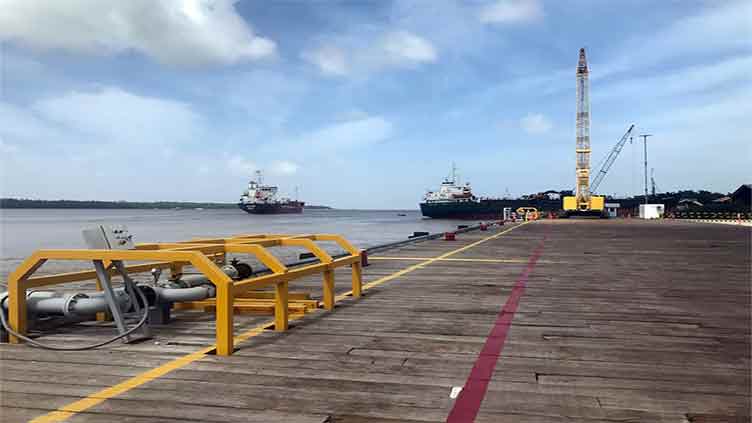Big Oil finds more to love in deepwater exploration fields

Business
Big Oil finds more to love in deepwater exploration fields
HOUSTON (Reuters) - As Big Oil returns this week to the industry's annual showcase for offshore energy projects and equipment in Houston, deepwater discoveries off Guyana, Namibia and the U.S. Gulf Coast will take the spotlight.
Offshore exploration had dimmed after the U.S. shale boom ushered in new and cheaper-to-tap supplies of oil, and as past offshore cost overruns pushed deepwater projects onto the industry's backburner.
Newer deepwater projects have the attributes oil and gas companies are looking for: longer-term production, lower breakeven costs, big resource potentials and lower carbon emissions, said Pablo Medina, head of new ventures at energy consultants Welligence.
"Deepwater is back in vogue," Medina said.
Capital spending on all-new deepwater drilling is poised to hit a 12-year high next year, predicts consultancy Rystad Energy. Investment in all-new and existing deepwater fields could hit $130.7 billion in 2027, a 30% jump over 2023, it said.
"The return of offshore and deepwater operations is going to be a big topic at OTC, and Namibia is going to be talk of the show," said James West, senior managing director at financial firm Evercore, referring to the recent series of oil finds off the west African coast.
FASTER PAYBACK PERIODS
With crude oil prices above $70 a barrels, energy producers can expect a return on their multi-billion-dollar deepwater projects in six years, a relatively short period considering the wells' longer lives compared with shale, explained Matt Hale, vice president of supply chain research at Rystad, at the Rystad Energy Forum in Houston last month.


